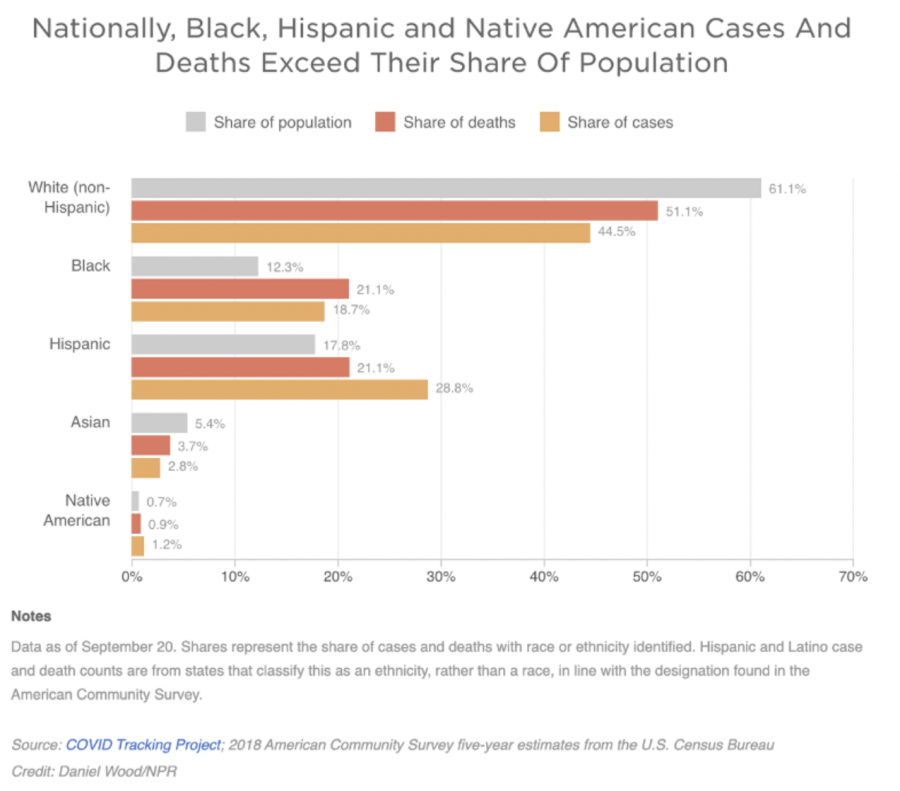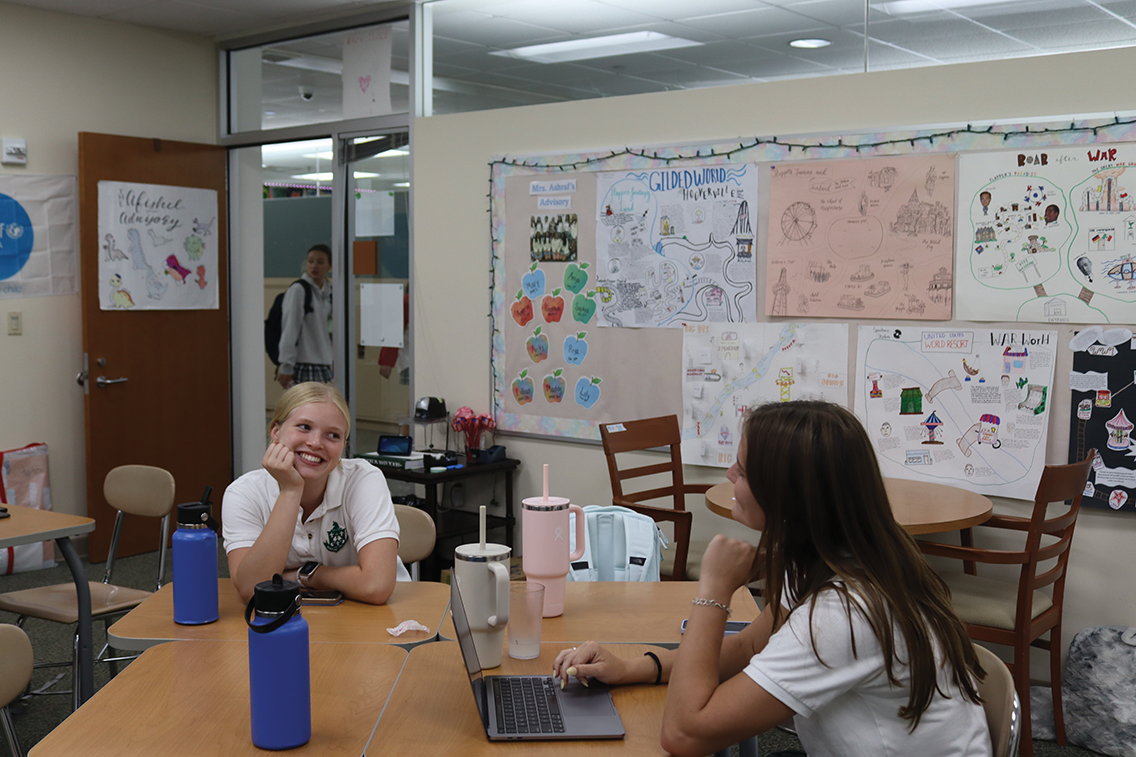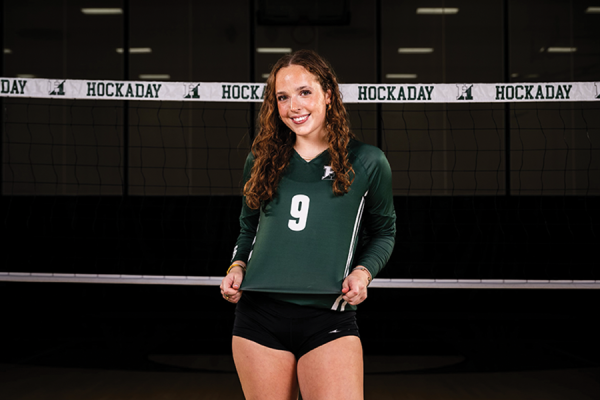After the Medical and Essential Workers, Who Should Be Next in Line for the Vaccine?
March 2, 2021
The math in this pandemic is simpler than you’d think. A quick comparison between numbers exposes some appalling facts: Black people, Latinx and Hispanic people, and Native Americans are being affected by COVID-19 at a disproportionately high rate in relation to their shares of population.
Undoubtedly, more white people have been affected than any other racial or ethnic group in terms of sheer numbers; however, they also occupy the largest share of population in America. BIPOC, on the other hand, are dying at percentages that exceed their share of population. These groups who have experienced healthcare access deserts, socioeconomic difficulties, and disproportionate vulnerability to the virus deserve vaccine priority. America needs to act based on the virtue of justice; an idea supported by Aristotle’s beliefs in the benefits of living virtuously. The only way forward is to correct the racial inequity in our country that is killing people of color at an exponential rate.
Lower income racial and ethnic minorities are more vulnerable to the virus than others, and here’s why. In this country, your wealth determines your health, and income inequality “translates to poorer health outcomes” (Ro). According to Dr. Utibe Essien at the University of Pittsburgh, “Black Americans [experience] well-documented disparities in access to quality health care” (Godoy). Due to economic disadvantages that limit healthcare access, black people in America are at a higher risk for diabetes, heart disease, and illnesses that weaken the respiratory and immune systems, culminating in more severe COVID symptoms (Ro). Housing, geographical, and occupational differences further contribute to the vulnerability of BIPOC to COVID-19. Indigenous communities like the Navajo Nation live with uranium-contaminated water that prevents them from properly washing their hands, a habit that is crucial to COVID-19 prevention (Demby). Native communities tend to reside in crowded homes of many generations far away from hospitals, according to Ed Yong, a science writer who covers COVID-19 at The Atlantic (Demby). Farmworkers in the U.S. often come from Latin America without legal documents, limiting their power to reject unsafe work conditions, physically distance in the fields, or obtain medical attention if needed (Ro). People of color even have higher chances of being “unemployed, underemployed or precariously employed,” prompting them to take virulent jobs that requires frequent contact with others, such as food delivery (Ro).
After administering the vaccine to health workers, each state should prioritize geographically dense areas of lower income, which will implicitly favor economically underprivileged racial and ethnic minorities (Schmidt). According to Dr. Marcella Nunez-Smith, an expert at Yale University, “we cannot get this pandemic under control if we do not address head-on the issues of inequity in our country. There is no other way” (Lozano). We must act virtuously by fighting the long-lasting racial injustices that have reared their ugly heads during this pandemic. Only then, as Aristotle believed, can America reach its true state of prosperity and defeat its two most lethal epidemics—COVID-19 and racism.










